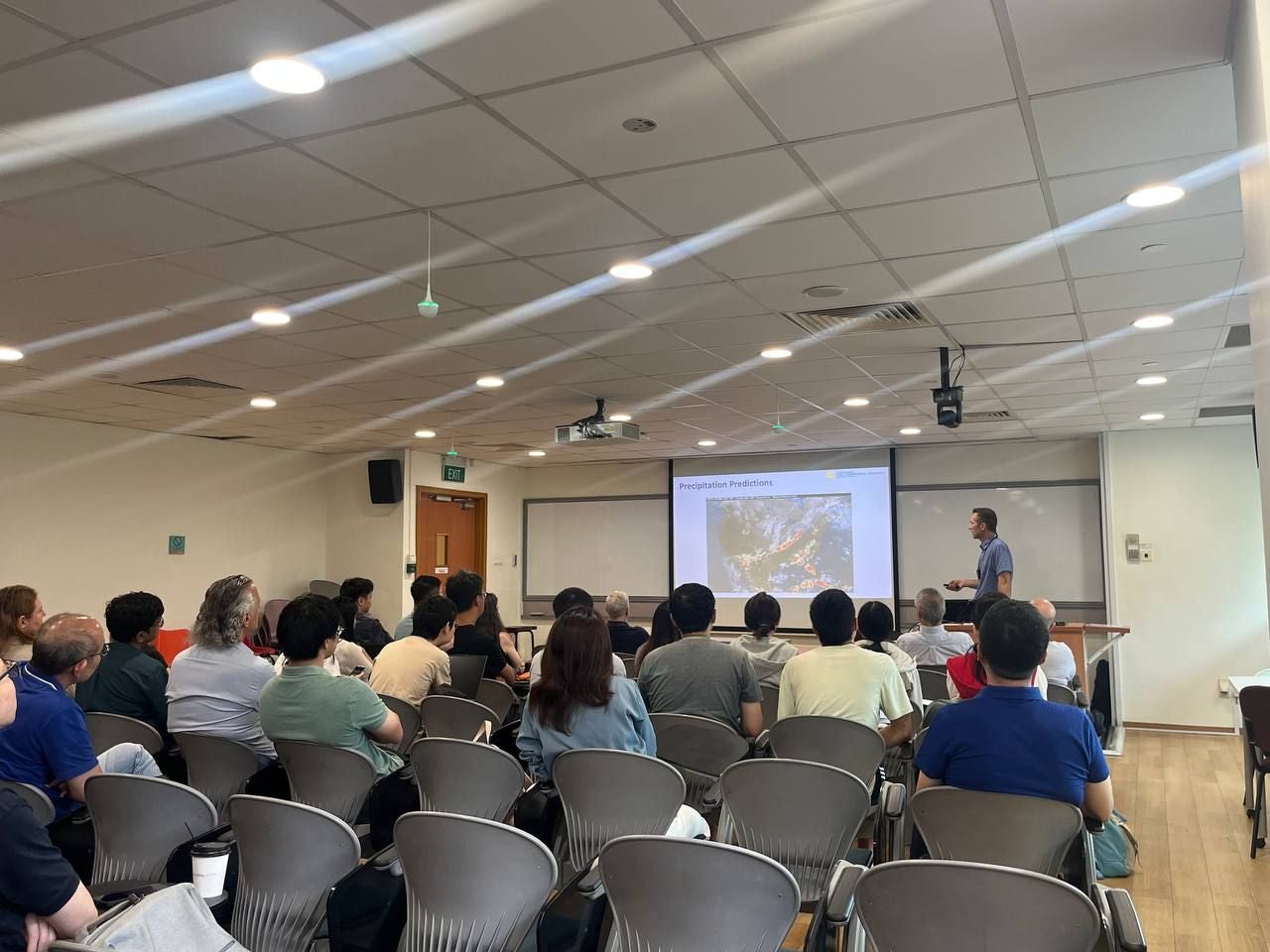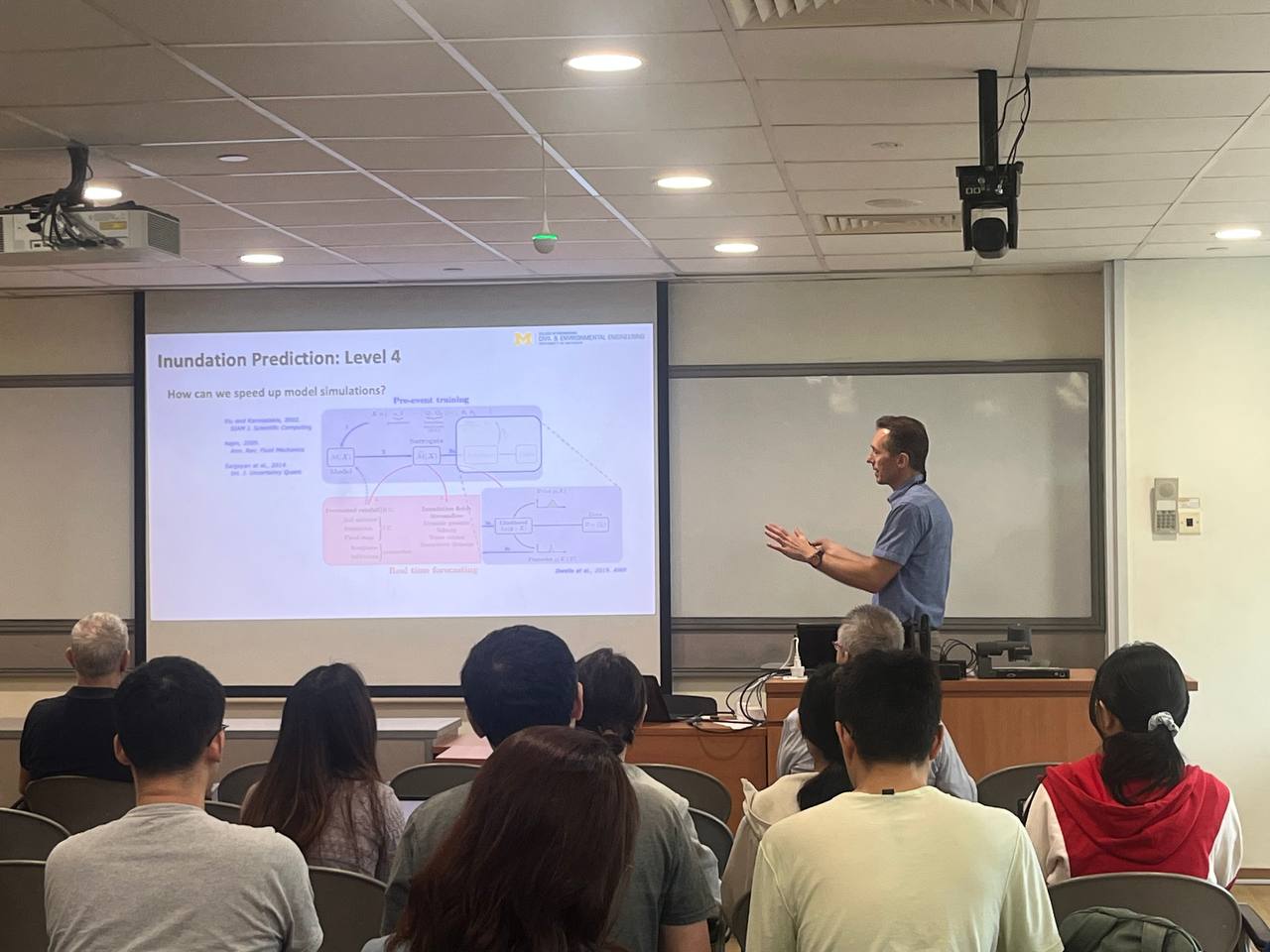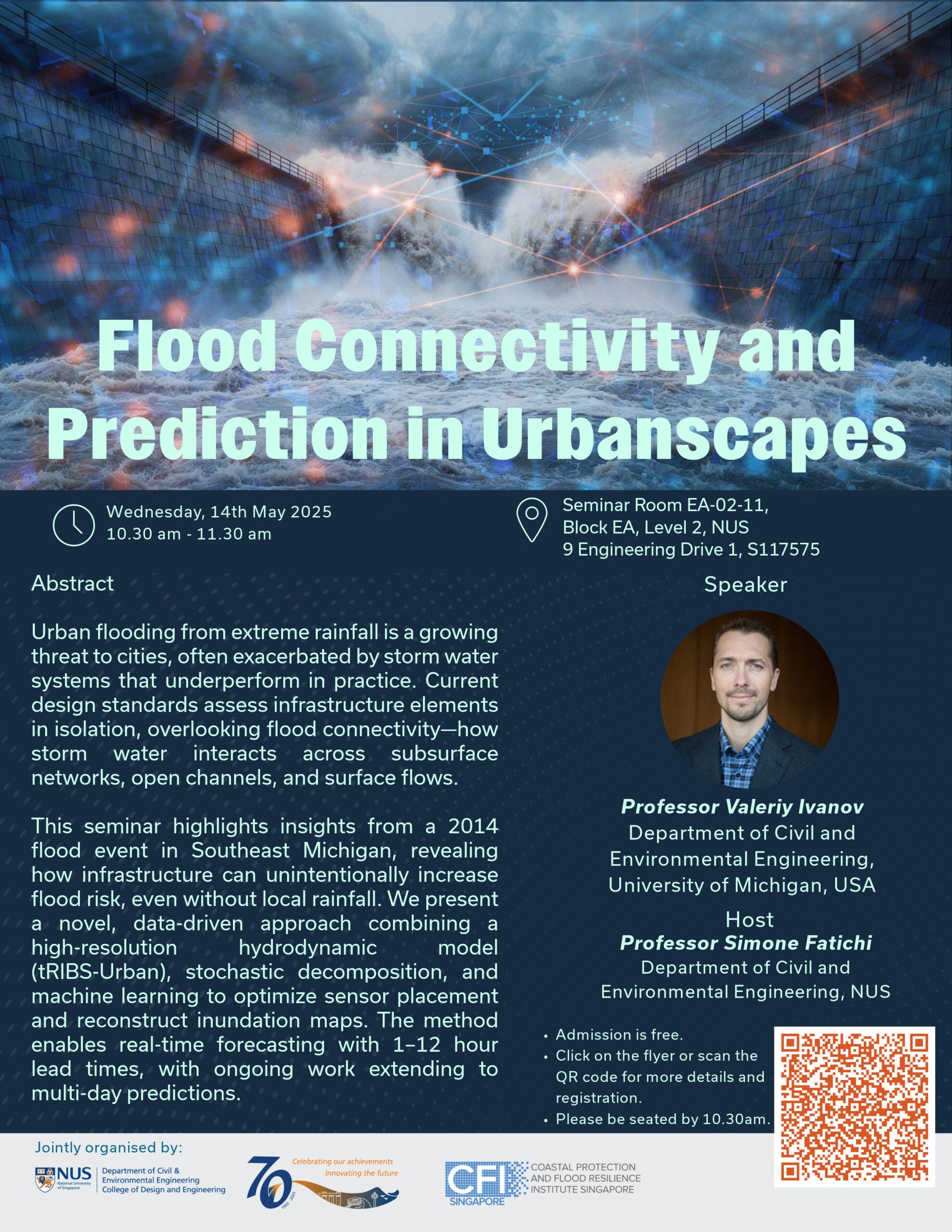CEE-CFI Seminar by Prof Valeriy Ivanov
Post-Event Recap


On 14 March 2025, CFI Singapore hosted Prof. Valeriy Ivanov from the University of Michigan for an insightful seminar on "Flood Connectivity and Prediction in Urbanscapes", together with the Department of Civil and Environmental Engineering. With 30 attendees, the session brought together researchers, practitioners, and students to explore the evolving science of urban flood dynamics and predictive modelling.
In this seminar, Prof. Ivanov highlighted some insights from the 2014 flood event in Southeast Michigan and shed some light on how connectivity within drainage systems, terrain, and infrastructure could influence flood behaviour. He even introduced a new data-driven approach combining s a high-resolution hydrodynamic model, stochastic decomposition, and machine learning, which aims at enabling real-time forecasting to enhance urban flood resilience. At the end of the seminar, attendees got to ask Prof. Ivanov some questions which result in lively discussions regarding these up and coming flood prevention technologies and capabilities.
A big thank you to everyone who joined us and contributed to the engaging discussions. We look forward to more conversations and collaborations in advancing Singapore’s climate and water resilience goals.
For more upcoming CFI events, please visit CFI's Events page.

Full Abstract
Urban flooding due to extreme precipitation poses an increasing threat to cities, necessitating improved design guidelines and best practices for urban stormwater-drainage infrastructure and accurate, timely predictions of flood characteristics. In practice, however, these systems do not always meet their assumed performance expectations. Current guidelines focus on understanding the performance of specific infrastructure elements — such as storm drains, culverts and pipelines — in isolation, rather than as part of a broader urban landscape. This fails to account for the complexity of flood ‘connectivity’: how flood flows can interact in subterranean pipelines, open channels, and over natural and human-made surfaces. Starting with analysis of unexpected flooding in southeast Michigan, USA, in 2014, we find that human-engineered infrastructure can introduce additional stormwater flow connectivity in urban environments that may increase flood risk (Fig. 1).
Paradoxically, design errors can reverse stormwater network functionality in the real world and lead, for instance, to flooding even in the absence of local rainfall. To advance predictive capabilities, we combine high-fidelity hydrodynamic urban flood model (tRIBS-Urban), stochastic field decomposition methods, and machine learning tools to develop a novel approach optimizing flood sensor placement and reconstructing inundation maps from (synthetic) observations at a few locations. The approach rapidly produces real-time forecasts for 1-12 hour lead times. We further present a general framework in development for real-time flood-forecasting in urban environments with lead time of several days.

About Professor Valeriy Ivanov
Education:
1996 - Diploma in Hydrology obtained at Moscow State University, Russia;
2002 - M.S.
2006 - Ph.D. obtained at the Massachusetts Institute of Technology, U.S.A.
In 2006, he pursued Ziff Postdoctoral Fellowship at the Center for the Environment, Harvard University and, in 2007, he started faculty position at the University of Michigan. Dr. Ivanov’s research interests involve physical surface and subsurface hydrology, floods, climate science and hydrologic impacts, plant water relations and ecohydraulics. Current research projects focus on Amazon rainforest ecohydrology; climate change and hydrometeorological impacts on reindeer herding in the Arctic; and the development of novel, first-principles and machine-learning based frameworks for fast, real-time assessment of flooding impacts for decision-making.

